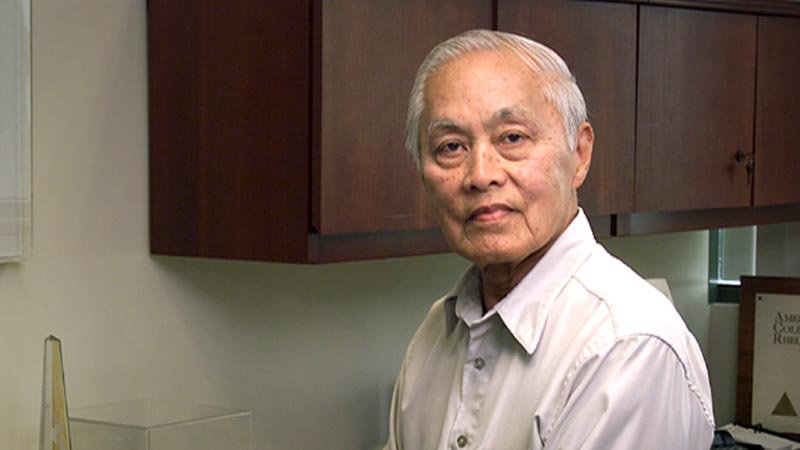
The Scripps Research community mourns the passing of Eng Tan, MD, esteemed professor emeritus who paved the way for advancements in autoimmune research. He was 97 years old.
Tan received his medical degree from Johns Hopkins University in 1956 and joined Scripps Research’s immunology team in 1965. Two years later, he led the institution’s Division of Allergy and Immunology. Although Tan left Scripps Research in 1977 for the University of Colorado Health Science Center, he returned in 1982 to direct the W. M. Keck Autoimmune Disease Center.
Much of Tan’s research focused on diagnostic tests for autoimmune diseases and cancer. Tan was particularly known for identifying autoantibodies that target cellular antigens, which are produced when a person’s immune system attacks healthy cells and triggers inappropriate inflammation, a distinct feature of systemic autoimmune disease.
“Professor Tan’s research on autoimmune antibodies was fundamentally important to understanding autoimmune disease, elevating the reputation of Scripps Research in the immunology field,” says Jim Paulson, PhD, Cecil H. and Ida M. Green Chair of Chemistry in the Department of Molecular Medicine at Scripps Research. “His work helped shape our modern understanding of autoimmune diseases, such as lupus.”
Published in 1966, one of Tan’s seminal papers implicated immune complexes involving circulating DNA in lupus nephritis, a disease that causes kidney inflammation. Tan was also known for elucidating the “lupus band test,” which combines immunofluorescence with skin biopsies to determine whether someone has abnormal immunoglobin levels—a common trait of lupus nephritis.
Another 1966 seminal study lead by Tan was the first to describe the anti-Smith antibody—a key indicator of the most common form of lupus, known as systemic lupus erythematosus. This paper aided the discovery of other autoantibodies indicative of rheumatic diseases. In the late 1970s, Tan also published research linking the Epstein-Barr virus to rheumatoid arthritis. Today, Tan’s classification of rheumatic diseases based on autoantibody serology is widely used to help diagnose systemic lupus erythematosus, as well as other systemic autoimmune rhematic diseases.
Over the course of his career, Tan received several honors, including awards from the Alexander von Humboldt Foundation, the International League of Associations for Rheumatology, the National Arthritis Foundation, the American College of Rheumatology, and the New York Academy of Medicine. He was also the founding president of the Henry Kunkel Society, named after his postdoctoral fellowship mentor at The Rockefeller University. Tan is survived by his wife Lisa, and his sons Philip and Peter.